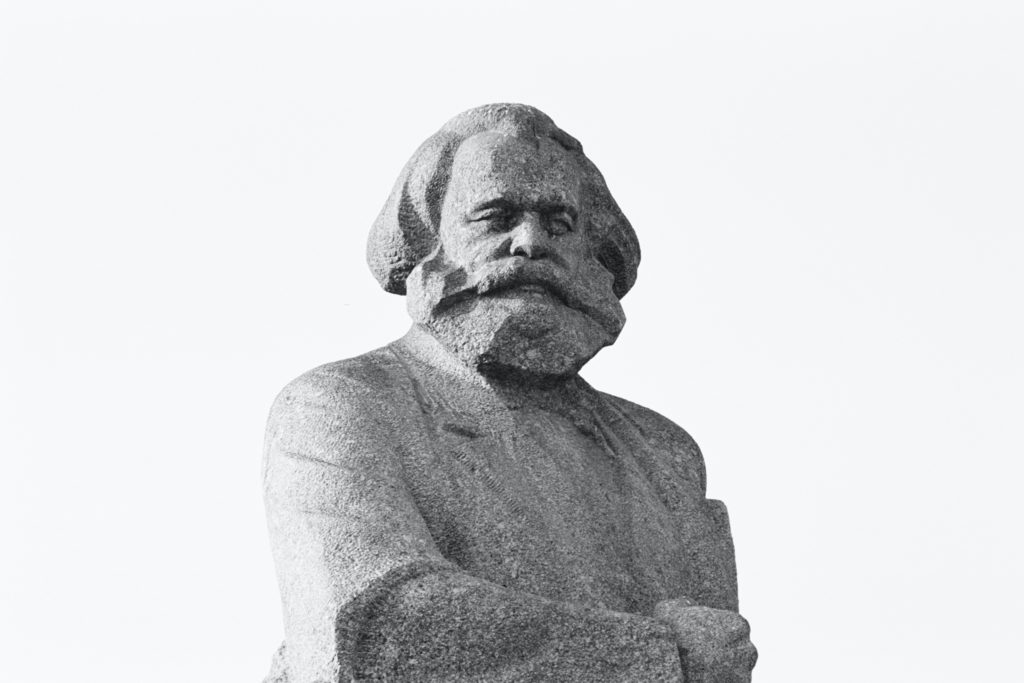In my new book Why Social Justice Is Not Biblical Justice: An Urgent Appeal to Fellow Christians in a Time of Social Crisis I explore the ideology described by its adherents as “social justice,” which has radically redefined the popular understanding of justice. In contrast to the older understanding of justice based on Judeo-Christian revelation, this new ideology is characterized by its:
- obsession with power, oppression, and victimization. It sees a world divided between evil oppressors and innocent victims in a zero-sum power struggle; nothing exists outside these categories
- use of tactics reminiscent of Mao’s Cultural Revolution and an “ends justifies the means” methodology
- fixation on class, race, gender, and sexual orientation as defining characteristics of personal identity; individuals are “nondescript representatives of their taxonomic class”
- hostility toward Judeo-Christian religion, particularly in its beliefs about family and sexuality
- antipathy toward the natural family, and specifically the authority of parents with their children, and the authority of the husband in the home
- fixation on redistributing wealth and power by an ever-larger state.
This hugely influential ideology is deadly serious. It is nothing less than a kind of cultural acid, eating away at the central pillars of a free, just, and open society. We dismiss it at our peril.
In my book, I explore the roots of this ideology:
For millennia, the Judeo-Christian worldview gave the West an overarching narrative, a framework and basis for justice, and sufficient grounding for human dignity. Today, all this has been cast aside, as that which formerly brought order to society, and meaning and purpose to the individual, has been abandoned. The worldview vacuum did not last long, of course. German social theorist Karl Marx (1818–1883) created a new narrative, a new worldview—a new religion, in fact—to replace the Judeo-Christian worldview as the West’s new “cult.”
Marx’s religion is based on modern, atheistic assumptions but is nonetheless compatible with postmodern thought categories, allowing these two worldviews to coexist quite happily in the post-Christian West. Both postmodernism and Marxism trace their lineage back to European Romanticism and Idealism, to philosophers such as Kant, Hegel, and Nietzsche. Not surprisingly, the most influential postmodern theorists, Michel Foucault (1926–1984) and Jacques Derrida (1930–2004) were greatly influenced by Marxism, with Foucault serving for a time as a member of the French Communist Party.
Throughout the twentieth century, Marx’s religious metanarrative was put to the test, first in Russia under Lenin and Stalin, then in China under Mao, and later in North Korea, Vietnam, Cambodia, and Cuba. These vast social experiments were unmitigated disasters, producing prison states, gulags, and genocides that killed hundreds of millions.
And yet despite this miserable track record, Marxism remains with us. Although in a different guise, Marx’s deadly theory, incredibly, has become the most influential worldview in the West. As communist states were beginning to collapse in the mid-twentieth century, a new generation of Marxist theorists arose in Europe to rescue the movement. These included Antonio Gramsci (1891–1937), Herbert Marcuse (1898–1979), and Max Horkheimer (1895–1973). Their informal network became known as the Frankfurt School, and their reboot of Marxism (sometimes referred to as “neo-Marxism” or “cultural Marxism”) was incubated in universities in the United States and Europe under the broad heading of “critical social theory.”
Marx’s worldview is built on the notion that the world can be divided into two basic categories: evil oppressors and innocent victims. Oppressors exercise their power and domination (their “hegemony,” according to Gramsci) through establishing and maintaining a network of often stealthy social institutions, structures, and systems that result in their being advantaged (or “privileged” in common parlance) in a host of ways. Marx limited his focus to the structures and systems that resulted in economic inequality between classes.
Marxism 1.0
| Good | Evil | |
| Oppressed victims (morally innocent) | Oppressive systems and structures | Oppressors (morally guilty) |
| The working class (the proletariat) | Capitalism | Wealthy property owners and capitalists (the bourgeoisie) |
The Frankfurt School social theorists expanded Marx’s economic, class-based framework to include inequalities between other groups, including ethnic groups, the sexes, and gender identity groups (LGBTQ+). The result is the same. As Nancy Pearcey explains, “Just as in classic Marxism, the proposed solution is to raise your consciousness (become aware of yourself as an oppressed group, or become “woke” in today’s parlance), then rise up against the oppressor.”
Marxism 2.0 (Cultural Marxism or Social Justice)
| Good | Evil | |
| Oppressed victims (morally innocent) | Oppressive systems and structures | Oppressors (morally guilty) |
| Class—The working class (the proletariat) | Capitalism | Property owners (the bourgeoisie) |
| Race—Ethnic minorities (people of color) | White supremacy (“whiteness”) | Whites |
| Sex—Females | The patriarchy | Males |
| Gender—LGBTQ+ | Judeo-Christian morality | Orthodox Christians, Jews, and other sexual traditionalists |
By utilizing a cultural strategy that some have called “the long march through the institutions,” the Frankfurt School social theorists and their allies achieved stunning success at embedding their presuppositions into Western public education, academia, the media, entertainment, big business, and politics. Today, ideological social justice dominates the commanding heights of Western culture and has even made significant inroads into mainstream evangelicalism.
What’s to account for the wild success of Marxism 2.0 in Western culture? While secularism severely undermined Christianity in Europe and the Americas, it couldn’t provide a compelling religious alternative to fill the vacuum and meet the innate human need for morality and purpose. Ideological social justice is perhaps best understood as a postmodern religious alternative (a “successor ideology”) to Christianity. Essayist Andrew Sullivan explains its appeal
For many, especially the young, discovering a new meaning [for life] . . . is thrilling. Social justice ideology does everything a religion should. It offers an account of the whole: that human life and society . . . must be seen entirely as a function of social power structures, in which various groups have spent all human existence oppressing other groups, and it provides a set of principles to resist and reverse this interlocking web of oppression.
Evangelist and Christian Apologist Larry Taunton has a fascinating piece up on his blog that contrasts the biblical worldview of the great British pastor Charles Spurgeon, and the atheistic worldview of Karl Marx. Spurgeon and Marx were contemporaries who both lived and worked in London in the mid-1800s. They no doubt knew of each other.
He writes:
It is very likely that the preaching of Spurgeon, and others like him, prevented the violent Revolution in Britain that Marx sought. Ironically, that revolution would come in the unindustrialized Russia of 1917, when Vladimir Lenin would, at the cost of millions of lives, implement Marx’s unworkable ideas. That is in no small measure due to the fact that there was no viable church to critique the undeliverable promises of socialism.
According to Russian historian Orlando Figes, when Marx’s Das Kapital was approved for publication in Russia by the censors who forbade almost any political expression, the ideas therein were released into an ideological vacuum. By contrast, those same ideas were (rightly) subjected to withering attacks in Britain by those who saw them for what they were. In this sense, Christianity served as a bulwark against the barbarism that has accompanied Marxism everywhere—everywhere—it has been implemented.
Today the battle continues, but the battlefield has expanded to the entire world. Marxism morphs as it goes, disguising itself until it reaches our own time in the sheep’s clothing of racial equality and so-called “social justice.”
The Gospel, however, remains remarkably unchanged. Its power to transform societies is one of the most underrated benefits of Christian belief. Through the inward transformation of the individual, there is a corresponding outward transformation of society.
No greater scam has been perpetrated on so many for so long than the lie that socialism, once adopted, will reorganize society along the lines of a utopia for all. Such political solutions have always failed, and this one has nothing but a history of catastrophic failure.
As Spurgeon so eloquently put it: “To attempt national regeneration without personal regeneration is to dream of erecting a house without separate bricks.”
I encourage you to read it all.
Let us hold fast to biblical justice and reject ideological social justice. Let us walk in the footsteps of Spurgeon rather than those of Marx, for the blessing of our nations.





Thank you so much.
I read Darrow Miller’s book ‘Discipling Nations’ at university and it profoundly influenced my thinking about engaging cultures. I look for knowledge and God given wisdom to understand the times through the lens of prevalent worldviews and these resources are invaluable.
Praying with you.